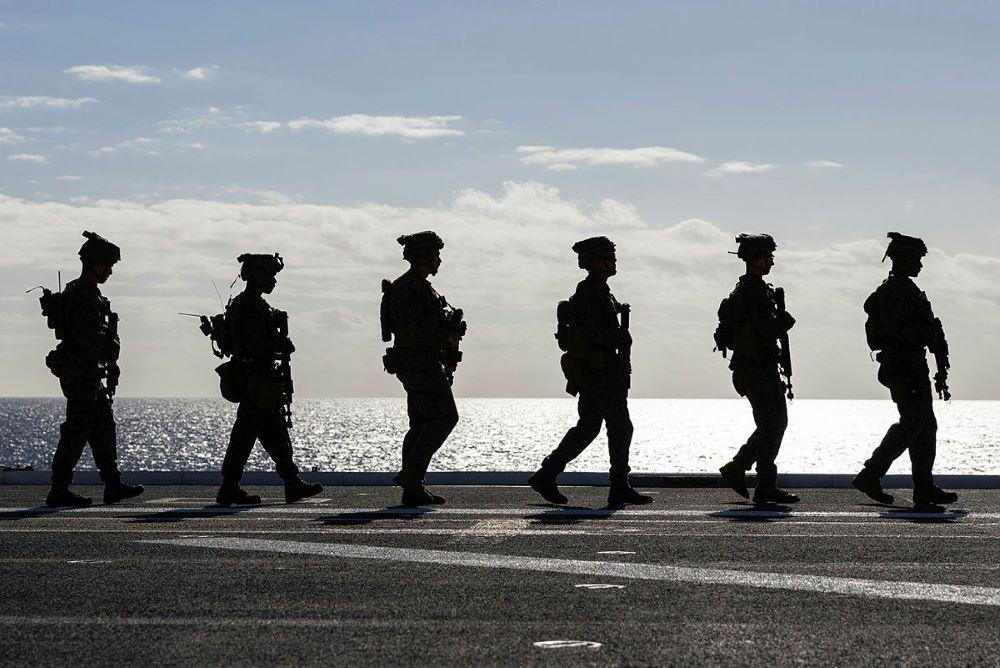Australia’s new defence era: archipelagic deterrence
Posted By Andrew Carr on August 28, 2023 @ 14:30

During the Cold War, Australian defence strategy was known as ‘forward defence’. Then came the ‘defence of Australia’ period, followed by the post–Cold War ‘war on terror’. Today, Australia is in a new era of ‘archipelagic deterrence’.
Archipelagic deterrence rests on three fundamental choices that governments, both Labor and Liberal, have made since around 2016. While there have been many announcements, and an often spiteful public debate, these three features, and consequently the main thrust of how Australia now seeks to defend itself, are as I argue in a new article [1], not well understood.
First, Australia has steadily pulled back its zone of concern in response to the threat from China. The 2013 defence white paper identified Australia’s region as the Indo-Pacific. While a vast region, this excluded the Middle East from Australian strategic concern. The 2016 white paper kept the Indo-Pacific, but emphasised an ‘inner ring’ in maritime Southeast Asia [2] and the Pacific. The 2020 defence strategic update made that shift explicit, stating that ‘defence planning will focus on our immediate region’, a zone running from the Indian Ocean through Southeast Asia and into the South Pacific, which the 2023 defence strategic review has embraced.
Second, the purpose of the Australian Defence Force has firmly shifted from being able to complement Western coalition forces to becoming a ‘focused force [3]’ designed for specific scenarios across the archipelagos to Australia’s north. The ADF’s primary responsibility is to establish an anti-access/area-denial shield across this zone, protecting the Australian continent and—so the government hopes—contributing to the regional balance of power. This involves not only new systems (hence the steady drumbeat of announcements [4] on new missiles, for instance), but also a historic shift in strategy.
Deterrence played almost no part in Australian defence policy during the Cold War. It was seen as inappropriate for a remote threat like the Soviet Union and too unwieldy as a basis for structuring force design. Outside of small deployments to Malaysia in the 1950s and Thailand in the 1960s, Australia didn’t practise or contribute to regional deterrence. Now, however, deterrence is the foundation of Australia’s new approach.
After some confusion during the previous government over ‘denial’ or ‘punishment’ models, the debate has settled on a ‘deterrence by denial’ strategy. Canberra wants Beijing to accept that the ADF could defeat any of the naval or air deployments China might send our way, both in the grey zone and in the event of outright hostility. Countering such a force (likely a small fraction of the Chinese military’s total capacity) would be a historic challenge for the ADF; hence the use of net assessments to discipline the force to these scenarios.
The word ‘archipelagic’ is used deliberately here. Australia isn’t trying to defend the entire continent, and nor does it need to. Instead, Australian geography is reconceived as if it is an archipelago of islands to protect and operate from, amid oceans of dirt. The defence strategic review highlights [3] the key ‘nodes’ in this ‘network’ as the ‘Cocos (Keeling) Islands in the northwest, through Royal Australian Air Force (RAAF) bases Learmonth, Curtin, Darwin, Tindal, Scherger and Townsville’. This pattern extends north of our territory, though it’s obvious why the review cannot publicly say so.
Most of the world’s archipelagic states are in our region, and the ADF will have to be able to operate seamlessly in this zone across sea, air and land (as well as underwater, in cyberspace and in outer space) to identify and respond to threats. What matters is not whether we can protect every inch of territory—we can’t in the missile age—but whether we can utilise our advantageous distance, while also maintaining and exploiting the connections between.
Third and finally, if the ADF is forming the shield, the US military, operating out of Australian bases, will be the sword. Canberra has made an unprecedented shift to accept US forces in Australia. As recently as 2015, Prime Minister Tony Abbott quickly dismissed Washington’s suggestions [5] that the US might place long-range strike options in Australia. Since the 2021 AUSMIN consultations, that has all changed. A greatly expanded US position in Australia offers the strike capability, size and logistical and industrial might to fundamentally shift the balance of power in Southeast Asia and the South Pacific.
While Australia’s public debate remains focused on Northeast Asian scenarios (Should we defend Taiwan? Are we trying to strike mainland China?), the meat and potatoes of Australian defence policy is back here in our immediate region. The primary features of the new strategy are a tight focus on our core strategic interests (our geography and people), an ADF redesigned for deterrence and warfare across the archipelagos to our north, and a bold shift to allow the US to project military power from our continent to secure the regional balance.
Welcome to the era of archipelagic deterrence.
Article printed from The Strategist: https://aspistrategist.ru
URL to article: /australias-new-defence-era-archipelagic-deterrence/
URLs in this post:
[1] new article: https://www.tandfonline.com/doi/full/10.1080/00396338.2023.2239058
[2] emphasised an ‘inner ring’ in maritime Southeast Asia: https://www.ifri.org/sites/default/files/atoms/files/carr_australia_middle_power_2019.pdf
[3] focused force: https://www.defence.gov.au/about/reviews-inquiries/defence-strategic-review
[4] drumbeat of announcements: https://www.theaustralian.com.au/nation/defence/chinas-warning-on-aukus/news-story/8a77d150c9381a16d9565a3e348783ca
[5] quickly dismissed Washington’s suggestions: https://www.abc.net.au/news/2015-05-15/pm-confirms-b-1-bombers-not-heading-to-australia/6471528
Click here to print.